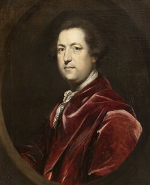The British Parliament in 1767 passed a series of laws known as the Townshend Acts, after the then-Chancellor of the Exchequer, Charles Townshend. This series of taxes proved very unpopular in the American colonies. Just a year before, Parliament had rescinded the Stamp Act in response to great outcry from the American colonists. But the Crown still needed money because it had incurred a significant amount of debt in winning the French and Indian War. George Grenville, who was in charge of the Treasury when the war ended, decided that the American people should pay a large part of the money Great Britain owed to its banks and to other countries that had given it money to buy weapons and to otherwise fight the war. After all, at the time, the American colonists paid less than one-twentieth of the taxes paid by people living in England. The Townshend Acts had five parts:
The opposition to the Stamp Act, Townshend thought, focused on "internal" taxes, ones that governed daily activities that took place within the colonies. Parliament had heard from no less eminent a spokesman than Benjamin Franklin that this was how Americans looked at things. The new taxes placed duties on "external" activities, on goods imported to the colonies from other places. No matter what Franklin or anybody else said, Townshend had misjudged the American sentiment. Imposing taxes in order to regulate trade was one thing; erecting new taxes just to raise money was something altogether different. Further, the colonists had no representation in Britain's far-away Parliament. 
Opposition to the Townshend Acts was swift and loud, if not often violent. Among the acts of protest were the publication of the Massachusetts Circular Letter, drafted by John Adams and James Otis, Jr., which urged the other colonies to follow Massachusetts' lead and petition King George III to repeal The Townshend Acts, and John Dickinson's Letters from a Farmer in Pennsylvania, which warned that the new taxes set a dangerous precedent and urged resistance through economic means. Dickinson also wrote the patriotic "Liberty Song," which appeared in the Boston Gazette and became quite popular throughout new England. One of the stanzas was this:
By uniting we stand, by dividing we fall; American colonists boycotted British-made goods. An effort spearheaded by the Sons of Liberty signed on people in 24 Connecticut, Massachusetts, and Rhode Island towns to go out of their way to avoid buying British goods of almost any kind, not just the ones with the new taxes. Rougher customers resorted to vandalism of shops selling the items being taxed or intimidating people who were willing to pay the taxes in order to obtain the goods being taxes. Some riots broke out and were put down with violence by British soldiers; one particularly violent altercation involved the confiscation of the Liberty, a ship belonging to John Hancock. Townshend didn't live long enough to see most of it. His successor, Lord North, confronted the colonists' vitriol. As usual, in Boston, tensions were high. British troops arrived there in October 1768 and kept coming, totally more than 2,000 the following year. Tempers boiled over in March of 1770, in what was later called the Boston Massacre. A month later, Parliament repealed the Townshend Acts, with the exception of the Tea Act. That tax was reaffirmed in 1773, an action that led to the reaction known as the Boston Tea Party. By the time that Parliament repealed the tea tax, in 1778, the Revolutionary War had begun. |
|
Social Studies for Kids
copyright 2002–2026
David White



 The New York Restraining Act. Parliament had in 1765 passed the Quartering Act, which required colonial assemblies to look after British soldiers, providing food, housing, and supplies. In response to the New York assembly's skimping on provisions, the British Government suspended the assembly's operations.
The New York Restraining Act. Parliament had in 1765 passed the Quartering Act, which required colonial assemblies to look after British soldiers, providing food, housing, and supplies. In response to the New York assembly's skimping on provisions, the British Government suspended the assembly's operations.
